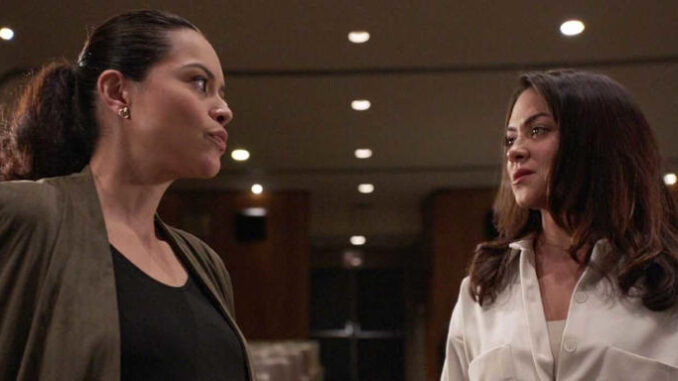
The Occasional Rough Patrol: Why Fans Were Disappointed by The Rookie's Least Loved Episodes
The Rookie has cemented itself as a fan-favorite, a comforting blend of procedural drama, heartfelt character development, and a dash of lighthearted humor. John Nolan's journey from an age-defying rookie to a nuanced police officer, surrounded by an ensemble of compelling colleagues, has resonated with millions. However, even the most beloved shows hit bumps in the road, delivering episodes or arcs that leave even the most dedicated fans scratching their heads or, worse, feeling genuinely disappointed. These are the moments when the magic falters, when the narrative loses its way, and when the creative choices clash with the audience's established affection for the world and its characters.
While pinpointing a definitive "Top 10 Least Loved" can be subjective and vary from fan to fan, certain recurring themes and specific storyline missteps consistently draw criticism. These episodes are often characterized by a perceived lack of authenticity, a forced sense of drama, or a deviation from the core strengths that made the show so popular in the first place.
One common source of disappointment stems from the "preachy" problem, where the show attempts to tackle complex social issues with a heavy hand, often at the expense of organic storytelling. Episodes like Season 4's "Plain Clothes Day" or "Real Crime" (S4E16), which delved into issues like implicit bias or the ethics of true crime fascination, felt to some viewers less like thoughtful explorations and more like thinly veiled sermons. The disappointment arose because these narratives often felt shoehorned in, disrupting the flow and character-driven focus that fans cherished. Instead of nuanced discussions, they frequently devolved into simplistic portrayals, leaving audiences feeling lectured rather than entertained or enlightened.
Another significant letdown has been the handling of underwhelming or overextended villain arcs. While the introduction of Rosalind Dyer (Annie Wersching) was initially praised for its chilling effectiveness, her continued presence, particularly in Season 5's "Death Sentence" (S5E1), began to stretch credulity and wear thin. The narrative quicksand of her various manipulations and near-escapes felt repetitive and, for some, cheapened the impact of her initial terror. Similarly, the long, drawn-out storyline involving Silas Blight and the criminal empire, which consumed a significant portion of Season 5, culminating in episodes like "Daddy Cop" (S5E16), was widely criticized. Fans grew frustrated with the slow pacing, the repetitive nature of Angela's pursuit, and the way it seemed to sideline other, more interesting character developments. The disappointment here was rooted in a desire for compelling, contained threats, not drawn-out sagas that felt more like filler than impactful plot.
The introduction and integration of the spin-off, The Rookie: Feds, also became a point of contention. Episodes like "The Choice" (S5E4), which served as direct backdoor pilots or heavy crossover events, often felt like thinly disguised commercials. Fans tuned into The Rookie for its established cast and storylines, not for lengthy introductions to new characters and worlds they hadn't necessarily invested in. This diverted screen time from beloved characters and ongoing plots, creating a sense of frustration that the main show was being used as a promotional vehicle. The disappointment was palpable as the narrative momentum of Nolan, Chen, Lopez, and Harper was sacrificed for a show many viewers had no interest in watching.
Then there's the issue of plot contrivances and convenient resolutions that undermine character stakes. Aaron Thorsen's near-fatal shooting in the Season 5 finale, "The Good, The Bad and The Ugly" (S5E22), was a shocking cliffhanger. However, his subsequent, remarkably swift recovery in Season 6 felt like a narrative cheat. The emotional weight of his trauma, and the potential consequences, were seemingly erased to get him back on patrol quickly. This kind of "no real consequences" approach can deflate the tension and make character struggles feel less genuine. Similarly, earlier incidents, like Nolan being framed and quickly exonerated in Season 3's "Triple Duty" (S3E11), felt like manufactured drama that resolved too easily, making the stakes feel low.
Finally, a persistent source of fan disappointment has been the frustrating relationship dynamics and character derailment. While the "Chenford" (Chen and Bradford) romance was a long-awaited development, its on-again, off-again, will-they-won't-they dance, particularly in the early stages of their romantic relationship or during minor conflicts in episodes like "The Reckoning" (S5E9), sometimes felt contrived and needlessly dramatic. Fans had invested in their slow-burn, hoping for a more mature and less angsty progression. When characters, even beloved ones, make decisions that seem out of sync with their established personalities, or when relationship drama feels manufactured, it breaks the audience's immersion.
In conclusion, The Rookie's occasional missteps, the episodes that linger in fans' minds for the wrong reasons, are not a reflection of a fundamentally flawed show but rather a testament to the high expectations its quality has set. Whether it's the heavy-handed social commentary, the stretched-out villain arcs, the intrusive spin-off crossovers, the convenient plot resolutions, or the frustrating relationship drama, the disappointment stems from a place of genuine affection. Fans want the show to be its best self – authentic, character-driven, and consistently entertaining. When it deviates from that successful formula, the dissonance is felt keenly, reminding us that even the best patrols can hit a few rough patches. Yet, the show's resilience and its consistent return to form speak volumes about why, despite these bumps, The Rookie remains a beloved staple in the landscape of television.